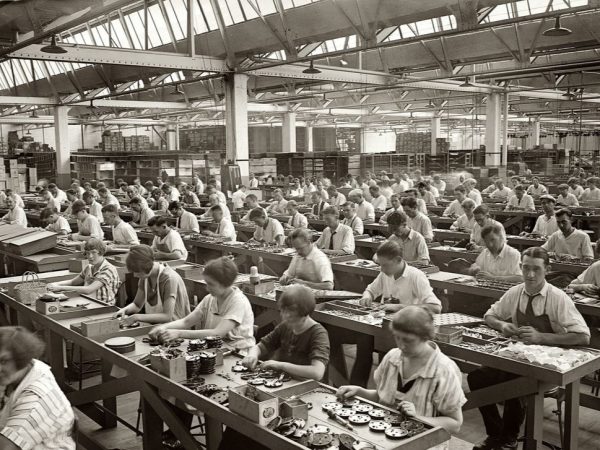1. The Birth of Factories: Catalyst of Transformation
The Factory Industrial Revolution was ignited by the establishment of centralized production centers known as factories. A radical departure from traditional cottage industries, factories brought together resources, machinery, and labor under a single roof. This consolidation paved the way for unparalleled levels of production efficiency.
2. Mechanization: Unleashing Technological Marvels
Central to the factory’s prowess was the wave of mechanization. Innovations such as the spinning jenny, water frame, and steam engine transformed manufacturing processes. Factories buzzed with the rhythmic harmony of machines, revolutionizing textiles, iron production, and more. Mechanization was the driving force that catapulted the world into the era of industrialization.
3. Labor Dynamics: From Craftsmen to Workers
The rise of factories reshaped the very nature of labor. Skilled artisans gave way to a new class of factory workers, who toiled under fixed hours and standardization. This transition was not without challenges—long working hours, hazardous conditions, and concerns about fair wages sparked discussions that laid the groundwork for labor movements and modern workers’ rights.
4. Urbanization: Cities of Progress and Peril
Factories acted as magnets, drawing people from rural areas to burgeoning urban centers. Cities grew at an unprecedented rate, fueled by the promise of employment and economic opportunity. However, urbanization brought its own set of challenges, including overcrowding, poor living conditions, and new social hierarchies. The push and pull between progress and the price paid for it became a defining narrative of this era.
5. Economic Upheaval: From Local Markets to Global Trade
Factories transformed economies by propelling them into new dimensions. The factory system not only increased production but also fostered the growth of capitalism. Surplus goods flooded markets, driving trade networks and globalization. Distant lands were connected through intricate trade routes, laying the groundwork for the interconnected world we know today.
6. Legacy and Reflections: Lessons Learned
The legacy of the Factory Industrial Revolution is still deeply ingrained in our society. Its innovations laid the foundation for modern manufacturing, while its challenges sparked conversations about workers’ rights, environmental sustainability, and equitable urban development. As we stand at the crossroads of progress, we are reminded that with each stride forward, we must also consider the broader impact on humanity and the planet.
